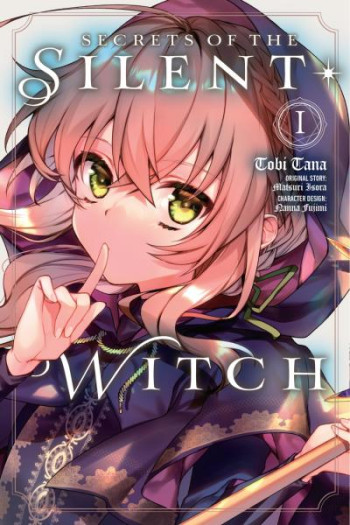
Kilty Plea
by Caroline Lee
Well, are they married, or aren’t they? And does it matter?
When Payton MacIntyre, quiet King’s Hunter, is sent to an Abbey to challenge the bandits threatening the land, he doesn’t expect to ride away with a wife. In fact, he’s still not convinced he’s actually married to the intriguing Flora, but that’s what he tells his family to escape their seasonal nagging-him-about-marriage session. But what will this new wife of his think when he finally removes his helmet and exposes his hideously scarred visage?
Desperate to escape the cruel Abbot and find her missing younger brother, Flora goes along with the phony marriage…she just doesn’t expect the Hunter to treat her so kindly. He might be reluctant to show his face, but his soft words—and softer touches—leave her breathless. And when he defends her to his family while searching for her brother, Flora falls even more in love.
But Yule is approaching, and Flora’s growing contentment is threatened by an old danger. Is her acceptance of Payton—and his belief in her love—enough to clear this threat from the Highlands, or will the new year bring a truth which will destroy them?
.
Read
Kilty Plea on http://kissnovel.net
Martial Peak Reviews
Caroline Lee's Kilty Plea is a captivating blend of romance and adventure set against the rugged backdrop of the Scottish Highlands. This novel weaves a tale of unexpected love, personal growth, and the power of acceptance, all while maintaining a gripping narrative that keeps readers engaged from start to finish.
At the heart of the story is Payton MacIntyre, a King's Hunter whose life is marked by duty and solitude. Payton is a character defined by his quiet strength and resilience, traits that are both his armor and his prison. His journey begins with a mission to confront bandits but quickly takes an unexpected turn when he finds himself entangled in a marriage of convenience with Flora, a woman whose own life is fraught with challenges. The complexity of Payton's character is one of the novel's strengths. His internal struggle with self-image, due to his scars, adds depth to his persona, making him a relatable and sympathetic hero.
Flora, on the other hand, is a character driven by desperation and hope. Her determination to escape the clutches of a cruel Abbot and find her missing brother is both admirable and poignant. Flora's character development is beautifully portrayed as she transitions from a woman in distress to one who finds strength and love in unexpected places. Her relationship with Payton is central to this transformation, and Lee skillfully navigates their evolving dynamic with sensitivity and nuance.
The theme of acceptance is a powerful undercurrent throughout the novel. Payton's fear of rejection due to his physical scars is a barrier he must overcome, and Flora's acceptance of him, both physically and emotionally, is a testament to the novel's message that love transcends superficial appearances. This theme is not only relevant but also resonates deeply with readers who may have faced similar insecurities in their own lives.
Another significant theme is the idea of family and belonging. Payton's interactions with his family, particularly in the context of his supposed marriage, highlight the societal pressures and expectations surrounding marriage and relationships. Flora's integration into this family dynamic, despite the initial pretense, underscores the importance of finding one's place and the comfort that comes with being accepted for who you are.
Lee's writing is both evocative and immersive, painting a vivid picture of the Scottish Highlands and the challenges faced by its inhabitants. Her attention to detail in describing the setting adds an authentic layer to the story, making the reader feel as though they are part of the rugged landscape and the unfolding drama. The pacing of the novel is well-balanced, with moments of tension and tenderness interspersed to maintain interest and emotional engagement.
In terms of character development, Lee excels in creating multidimensional characters who grow and evolve throughout the narrative. Payton and Flora's journey is not just about finding love but also about personal growth and overcoming past traumas. Their relationship is built on mutual respect and understanding, and it is refreshing to see a romance that develops organically rather than relying on clichéd tropes.
Comparatively, Kilty Plea shares thematic similarities with other historical romances, such as Diana Gabaldon's Outlander series, where the rugged Scottish setting and the exploration of love against a backdrop of danger are central elements. However, Lee's novel distinguishes itself through its focus on the internal struggles of its characters and the emphasis on acceptance and healing.
The novel's climax, set against the backdrop of the approaching Yule, brings the story's themes to a head. The impending threat and the resolution of Flora's quest to find her brother add layers of suspense and urgency, culminating in a satisfying conclusion that ties together the various narrative threads. The resolution reinforces the novel's message that love and acceptance can overcome even the most daunting challenges.
Overall, Kilty Plea is a compelling read that offers a rich tapestry of romance, adventure, and emotional depth. Caroline Lee has crafted a story that not only entertains but also resonates on a deeper level, exploring themes of acceptance, love, and personal growth. For readers who enjoy historical romance with a touch of adventure and a strong emotional core, Kilty Plea is a must-read. Its well-drawn characters, engaging plot, and evocative setting make it a standout addition to the genre.
























Reviews 0
Post a Reviews: